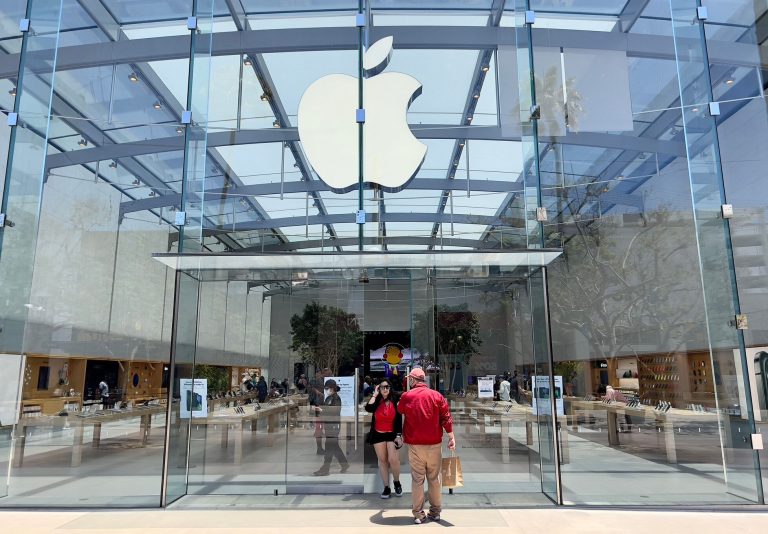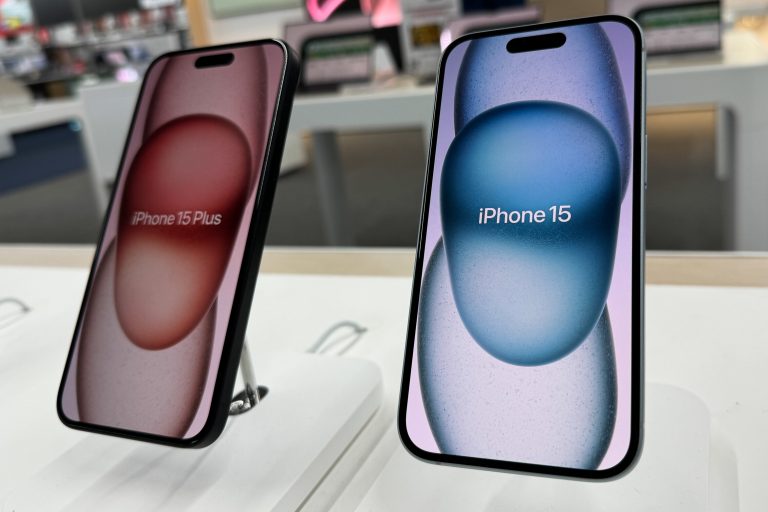I’m sure this won’t matter to Apple critics who cry ‘fanboy’ in response to any and every defense of the iPhone maker — but, regardless, I want to make a few things clear before getting into why I think the US Justice Dept.’s newly filed lawsuit against Apple over antitrust concerns is utterly absurd.
First and foremost: I’m no Apple apologist. There are plenty of things the company and its executives do that I disagree with or think are questionable, like CEO Tim Cook’s relentless courtship of the Chinese market and Chinese decision-makers — an odd look for a company that talks so much about progressive values. Likewise, the Visigoths at Google have already plundered and pillaged much of the Internet, and the fact that Apple is reportedly thinking about bringing Google Gemini to the iPhone will, regrettably, enable that behavior to continue.
With all that said, let’s turn to the DOJ lawsuit against Apple — and talk, first, about what it’s not about.

The suit, which the federal government filed on Thursday in the US District Court for the District of New Jersey, is not about how big Apple is or isn’t. Android, of course, accounts for the largest global smartphone market share by far, while iPhones have a 60% or so market share in the US last I checked. That dominance in and of itself, though, does not automatically trigger an antitrust action like this one from the federal government. Bigness, which is to say success, is not illegal.
The problem arises when a company uses its size to exert harm on consumers as well as its rivals in a marketplace.
With respect to the DOJ lawsuit, by the way, good luck finding where that harm to consumers exists in the case of Apple and iPhone. iPhones certainly don’t enjoy upwards of 90% customer retention because those users feel compelled to keep buying new iPhones against their will.
Having said all that, I don’t want to imply that a solid antitrust case could not reasonably be made against Apple. All I’m arguing is that today’s lawsuit doesn’t get there. Why? For starters, because of a concept that the Supreme Court has upheld known as “refusal to deal.” What it means is that, basically, companies like Apple are under no obligation to deal with or to make life better for their rivals. It’s for this reason that, say, Target is under no obligation to carry Walmart-branded products.
Said another way, since the word “monopoly” is being thrown around a lot in news coverage of the Apple suit — there’s nothing illegal about a company “monopolizing” its own customers. If you step into that Target store of your own volition, only a fool at that point would look around and lament the store’s absence of Walmart-branded products. Nor would a reasonable person expect Target to look the other way as you set up your own lemonade stand right there in the middle of the store.

Neither Target kicking out that lemonade stand owner nor presenting them with an agreement that includes terms the intruder finds onerous reflects antitrust behavior. And, to a certain extent, this is exactly what companies like Epic Games claim Apple has done and which led to the filing of the government’s suit in the first place.
“Each step in Apple’s course of conduct built and reinforced the moat around its smartphone monopoly,” the government alleges in the suit. A statement that I suspect many people will have a problem with, given that not only is no one forced to buy an iPhone, but if you don’t want to buy one … well, do I even need to finish that sentence? You can simply walk across the proverbial street and buy an Android device.
Some “monopoly.”
Leave it to a left-wing federal government that’s generally hostile to the business community to conflate notions like antitrust (which is illegal) and anti-competitive (which is not illegal). “By tightly controlling the user experience on iPhones and other devices,” the New York Times writes about the DOJ suit, “Apple has created what critics call an uneven playing field, where it grants its own products and services access to core features that it denies rivals.“
How dare a company try and … (checks notes) … beat its rivals in the free and open marketplace! Oh, but it gets more hilarious.
Continues the NYT: “(Apple) ‘undermines’ the ability of iPhone users to message with owners of other types of smartphones.” I don’t know about you, but my extensive Facebook Messenger and WhatsApp chat histories say otherwise.
I could go on, but what’s been abundantly clear for years now is that there seems to be something about Apple’s success that makes people lose their minds — and the federal government is definitely one of the worst offenders in this regard. Consider this statement today from Attorney General Merrick Garland (someone, I should add, that President Obama tried to put on the Supreme Court):
“When an iPhone user puts a credit or debit card into Apple Wallet, Apple inserts itself in a process that could otherwise occur directly between the user and card issuer. This introduces an additional potential point of failure for the privacy and security of Apple users.”
No, Mr. Attorney General, Apple Wallet and Apple Pay are actually much-needed correctives to years of the government letting credit card companies run roughshod over consumers and sell their data to third parties. Not only does Apple not do the latter, but every word of Garland’s second sentence in the statement above is demonstrably false. An understanding of how Apple Wallet works, though, would really only get in the way of the government’s ultimate goal with the DOJ lawsuit: To punish achievement, by taking a successful American company down a peg.








